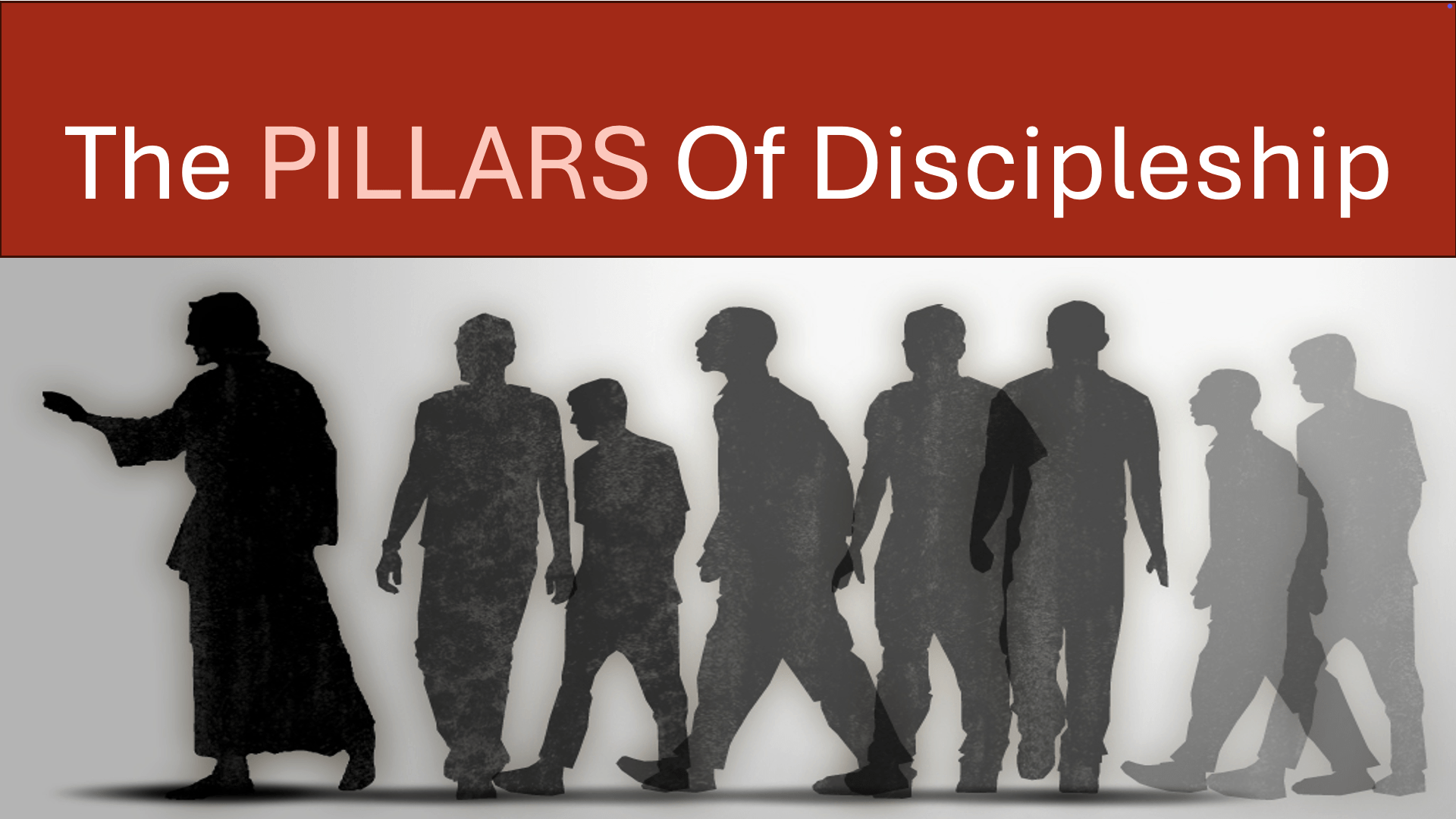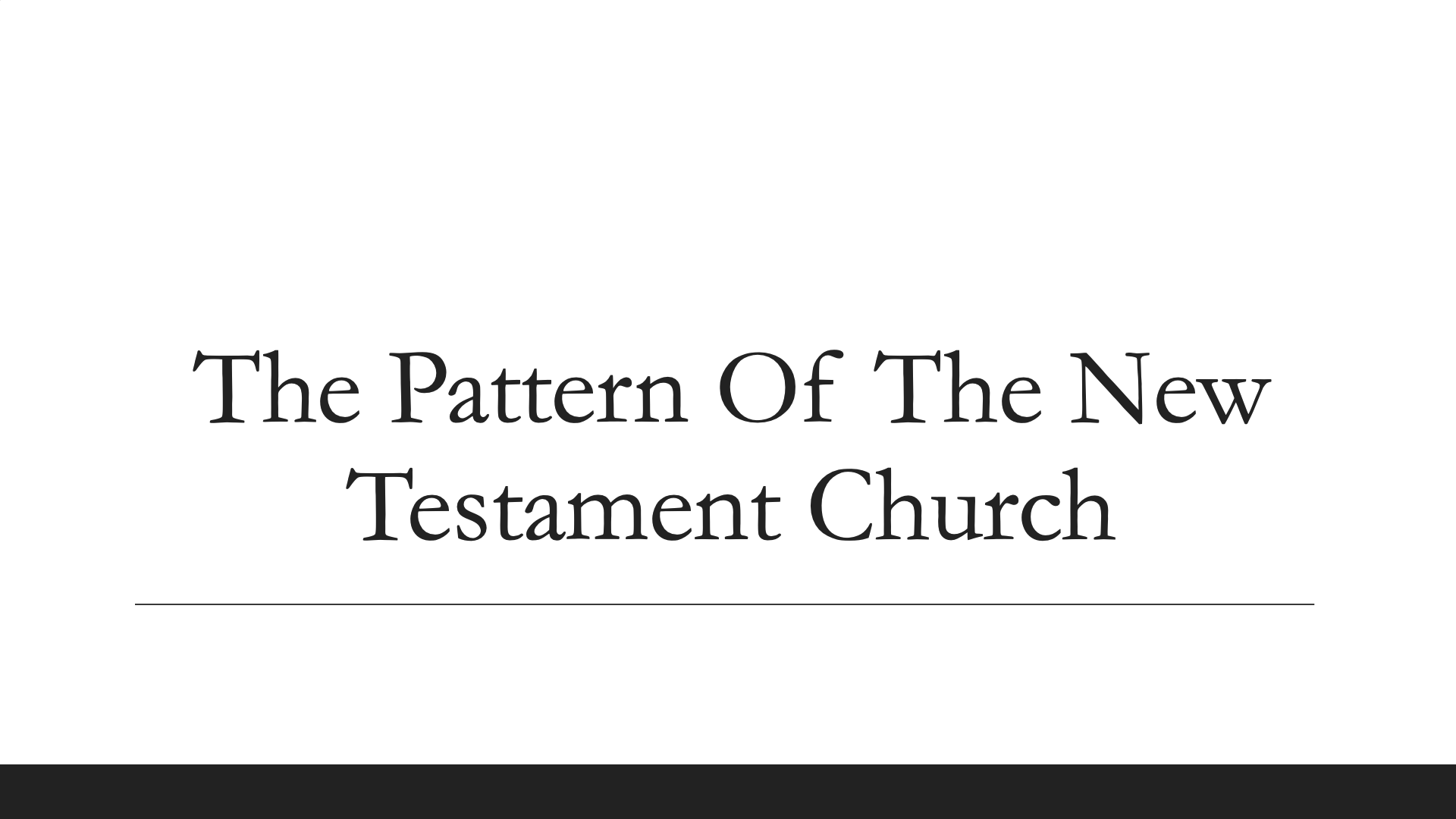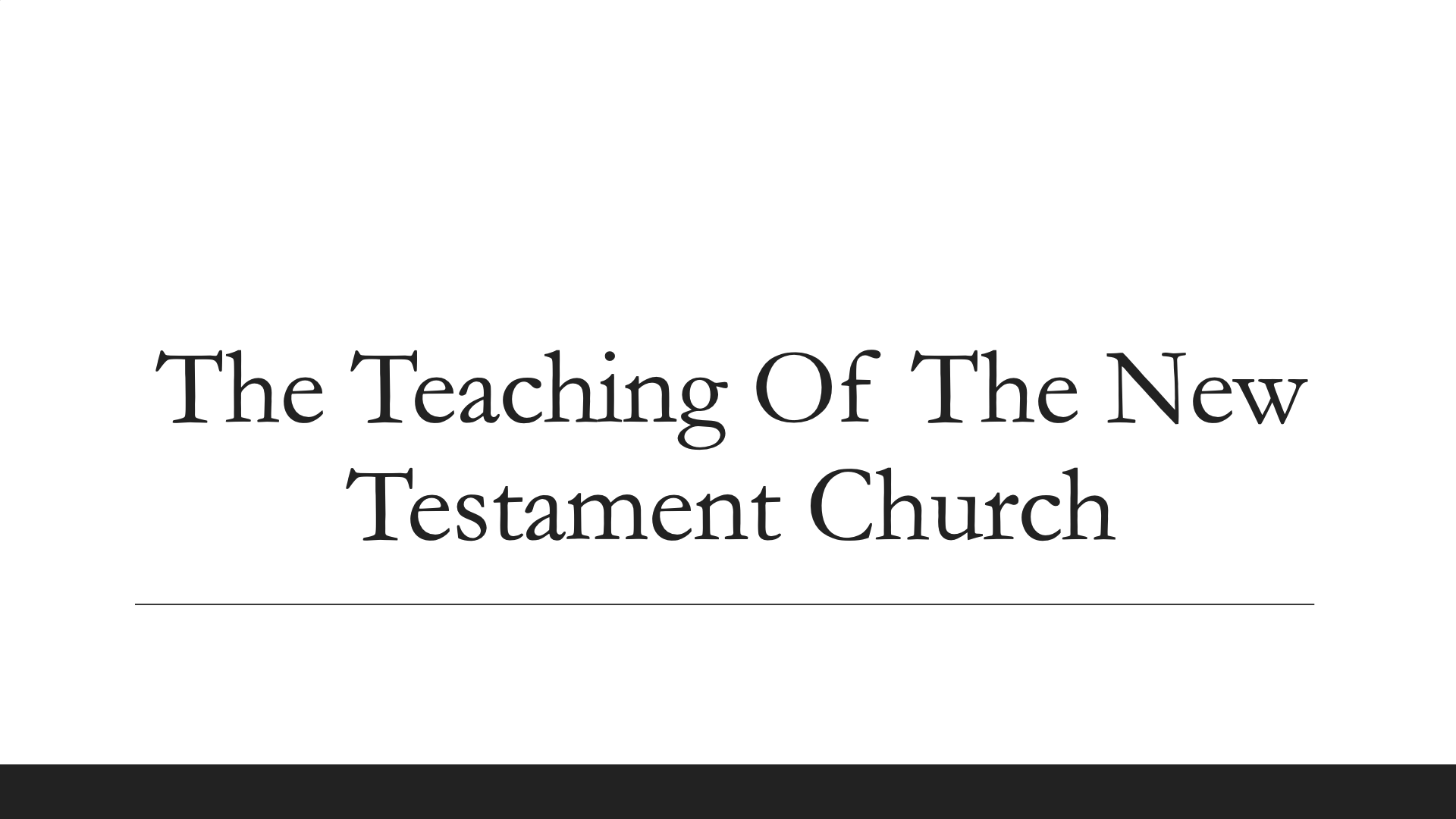Description: Learn some basics about the true identification of Jesus' church and why it is important to be part of it
Downloadable Files:
Read:
Lesson 7: What Is The Church?
There are tens of thousands of different churches in the world today, all with different doctrinal beliefs and involved in different works. Although it is often suggested that God approves of this, we must allow God’s word to challenge our thinking and see whether it really is pleasing to God. Is it important to join a church? Does God approve of all the different churches that exist today? How do I know which church to join? Jesus only established one church (not many different churches, Matthew 16:18) and only one church was established (Acts 2:38, 41, 47). Therefore, you must understand what is involved in being part of Jesus’s one church, as many have been deceived into being part of churches that have been created by people rather than Jesus.
The purpose of this lesson is to learn some basics about the true identification of Jesus’s church and why it is important to be part of it.
What The Church Is Not
Many false views of the church. Can all the thousands of different churches all be right in God’s sight? Each one has different beliefs, doctrines, and practices in the name of “Christianity.” Clearly, everyone can’t be right! Since there is only one Way (John 14:6) and Christ is not divided (1 Corinthians 1:13), it is not okay for churches to be divided in their beliefs, teachings, and practices (1 Corinthians 1:10). In fact, there is only one faith of the gospel (Philippians 1:27). That is, there is only one system of religious belief, teaching, and practice that is acceptable to God (Ephesians 4:4-6). Then, there is only one body (church, Ephesians 1:22-23; Colossians 1:18; Matthew 16:18; Acts 2:41, 47). Unfortunately, while God has only established one church and provided one faith, many people have introduced false ideas as to what the church is and greatly distorted the church in the process.
An earthly organization. Just as people during Jesus’s life were looking for Him to establish an earthly kingdom, many people today see the church as nothing more than an earthly organization that accomplishes a physical work to make this world a better place. But, this is not what the Bible teaches about the church! Sadly, many churches today have characteristics of an earthly organization (i.e. hierarchal systems of organization, business oriented goals, fundraising).
A social club. Many people have misguided views about fellowship that are primarily concerned with physical things. Yet, true Bible fellowship between Christians is based on a mutual relationship with God (1 John 1:7). While Christians should want to be close on a physical level, it is not the role of the church to provide for and organize such social gatherings/events! Sadly, churches today often have the characteristics of a social club (i.e. assemblies that de-emphasize God’s word, being involved in sponsoring entertainment, building kitchens, gymnasiums, theaters, etc.).
A political machine. Some churches have stopped speaking God’s word and exchanged it for a message that focuses more on social issues and reforms and political issues. Yet, while individuals can be involved politically, this is not the God-given role of the church (except as it may influence individuals and societies through teaching God’s word)! Sadly, there are many churches today that have the characteristics of a political machine (i.e. sermons focus on cultural issues, sermons focused on being politically correct, etc.).
A building where religious people meet together. Some people act and talk as if the church is nothing more than a building where religious people come together. However, when Saul was persecuting the church (Acts 8:1-3), he was harming people who belonged to Jesus – not a physical structure! Sadly, churches today often have characteristics of being a meeting place (i.e. members viewing their responsibilities lightly, not being involved in one another’s lives, having minimal contact with one another between meetings, etc.).
Christ. Some churches have reversed their role with Christ’s role, seeing themselves as the head of the body. Yet, this role only belongs to Christ (Colossians 1:18)! Sadly, churches today often have the characteristics of Christ in this respect (i.e. believe they have the authority to change the law rather than simply uphold Christ’s law, become a human organization that submits to people rather than a spiritual kingdom subject only to Christ, teach salvation through a church rather than through Jesus, etc.).
A group of denominations. Many view the church of Christ as being a big umbrella consisting of all the different “Christians” from the many denominational and non-denominational churches (i.e. Baptist, Methodist, Lutheran, Pentecostal, Nazarene, etc.). Sadly, churches today often have characteristics of being part of a group of denominations (i.e. accepting those who believe and practice their faith differently, considering people Christians who have never really been obedient to God’s plan of salvation, considering the church to be made up of religious bodies rather than people, accepting churches that believe, teach, and practice what is contrary to the Bible, etc., 2 John 1:9-11; Galatians 1:6-9).
The “Universal” Church
“Ekklesia. This Greek word can be translated “church,” “congregation,” and “assembly.” The word has an ordinary use referring to a gathering of people (Acts 19:32, 39, 41). Then, it is primarily used in a religious sense in the New Testament in reference to the congregation/community of those who have been obedient to the gospel of Christ and have given their lives to the Lord (Matthew 16:18; Acts 8:3; 1 Peter 2:9).
The collection of God’s people. Sometimes the word “church” is used in a “universal” sense in reference to the one (and only) collection of God’s people who are in a saved condition (Matthew 16:18; Ephesians 4:4) and has access to all spiritual blessings (Ephesians 1:3, 5, 7; 2 Timothy 2:10). Christ only adds those who are obedient to His plan of salvation to His church (discussed in lesson six, Acts 2:37-47). And, there is no earthly organizational structure, no collective earthly work, and no collective worship.
Other terms used in reference to the church. First, the church is sometimes referred to as the kingdom of God, as those in Christ’s church are kingdom citizens who are devoted to their King, Jesus Christ (Matthew 16:18-19; Colossians 1:13). Second, the church is sometimes referred to as the body of Christ, wherein Christ is the Head and every member performs an important function in the body (Colossians 1:18; Ephesians 1:22-23; 1 Corinthians 12:12-31). Third, the church is sometimes referred to as the household of God, in which the church enjoys a special relationship with God and with one another as a spiritual family (1 Timothy 3:15; Ephesians 2:19-22; Romans 8:14-17). Fourth, the church is sometimes referred to as the temple of God, as God dwells in Christians through His Spirit-inspired word and glorifies God by keeping His commandments (1 Corinthians 3:16-17; Ephesians 2:19-22; 1 Corinthians 6:19-20). And, fifth, the church is sometimes referred to as the church of Christ, as these are people belonging to Jesus Christ and have been purchased by His blood – who wear Christ’s name alone and reject human names (Acts 20:28; Romans 16:16).
The “Local” Church
A local collection of God’s people. Sometimes the word “church” is used in a “local” sense. This refers to a collection of God’s people (who are members of the one “universal” church) in a local geographic area, who have joined themselves together to work for and worship God. While there are many churches in this local sense, these are not different denominations that hold to different beliefs and practices! So, rather than being different kinds of churches that believe, teach, and practice their faiths differently, true local churches consist of those who have been obedient to the commands of God and hold on to God’s pattern!
The Bible teaches that you should join a local church. Throughout the New Testament, the approved example goes as follows: People become Christians, are added by God to His one “universal” church, and then join themselves to Christians in their local geographic area. Acts 9:26, for example, shows the example of Saul doing this after he became a Christian. You see, God does not want His people to be alone and has created the local church to be a base of fellowship and strength that is greater than the individual. However, you should only join yourself to a local church that is following God’s pattern (starting one if none exist). For, you do not want to participate in anything that goes against Christ’s teaching (2 John 1:9-11)!
The pattern for local churches. God has given a clear blueprint (pattern) for local churches to follow in the New Testament (Colossians 3:17; 2 Timothy 1:13). For example, God has given a pattern for the organizational structure of the local church (Philippians 1:1) that involves saints (Christians), overseers (elders, shepherds who must meet specific qualifications), and deacons (who must meet specific qualifications). God has also given a pattern for the work of the local church that involves evangelizing the lost (1 Thessalonians 1:8), edifying the saved (1 Corinthians 14:26), and showing benevolence toward needy Christians (1 Corinthians 16:1-4). And, God has given a pattern for the worship of the local church that involves the church assembling together (1 Corinthians 14:23; Hebrews 10:24-25) to pray (1 Corinthians 14:15), sing (1 Corinthians 14:15), preaching (Acts 20:7), partaking of the Lord’s Supper on the first day of the week (Acts 20:7), and taking up the collection on the first day of the week (1 Corinthians 16:1-2).
Conclusion
Christ has only established one church that is composed of all who have been saved by Him (in obedience to His word). God desires all Christians to join themselves to a local church that follows His pattern in all things.



